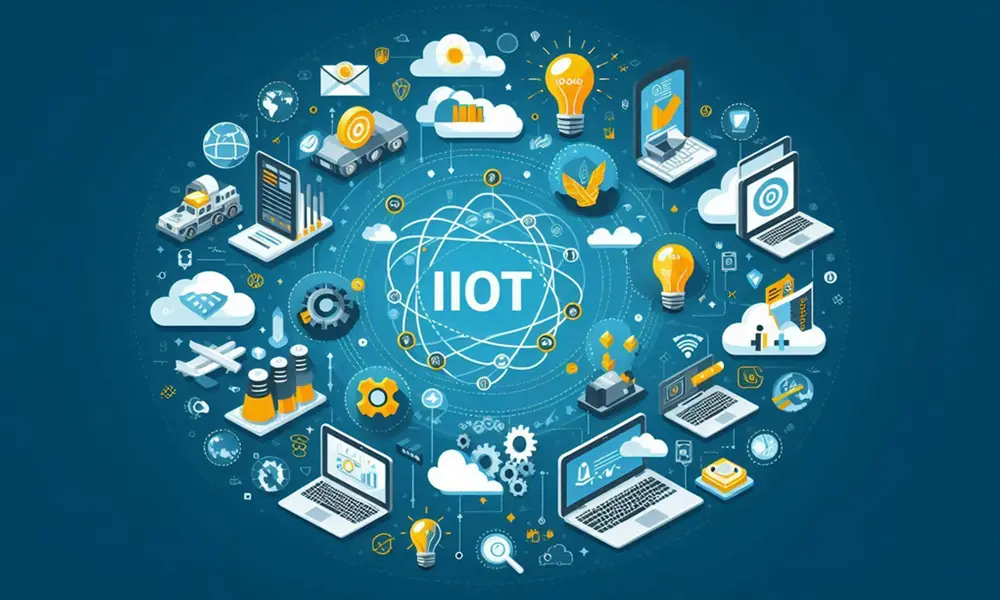There are many applications of artificial intelligence in healthcare. AI technology is changing the way in which the health sector works. AI also has some limitations and challenges in healthcare that must be considered. In this post, you will learn about the artificial intelligence in healthcare pros and cons. So, let’s get started!

Pros and Cons of Artificial Intelligence (AI) in Healthcare
Today, Artificial Intelligence is transforming the healthcare sector through its applications in decision making, report analysis, disease diagnosis, and patient care.
With the continuous digital transformation and integration of AI into healthcare, it is now smarter and not more difficult to care for patients. In fact, the use of artificial intelligence in healthcare, as well as patient-specific products derived from 3D printing or the consolidation of robotic surgery, are some of the innovations that will improve healing and change healthcare for the better.
There are many applications of artificial intelligence in healthcare. Like other technologies, AI also has some limitations and challenges that must be considered. In this post, we will discuss the pros and cons of Artificial Intelligence in healthcare.
Artificial Intelligence in Healthcare
Artificial Intelligence (AI) is changing the way the health sector operates, improving all the edges, from routine tasks to data management and the creation of medicines. Healthcare technology is constantly evolving in search of ways to improve. It is not surprising that healthcare and business providers are getting on board with machine learning and artificial intelligence.
Machine learning and Artificial Intelligence provide solid data-based support for healthcare professionals. Using algorithms and data, these technologies can identify patterns and deliver conclusions that help perform simple actions such as health monitoring, medical record management, treatment design, and even digital consultations.
There are many obvious benefits to implementing artificial intelligence in healthcare, some debate the pros and cons of the clinical and financial implications of ML algorithms and data-driven technology when it comes to patient care. To explore both sides of the debate we have listed the advantages and disadvantages of the implementation of AI in the health sector.
Pros of AI in Healthcare
The digital transformation and development of artificial intelligence have greatly boosted the evolution of healthcare technology. We can find new tools and mechanisms that help us to:
- Offer faster and more accurate diagnoses.
- Automate repetitive tasks.
- Speed up data interpretation.
- Find more effective treatments.
- Improve the quality of care.
- Optimize available healthcare resources.
- Streamline research times for the development of new drugs.
We could say that AI technology is currently applied in all areas of health. Here are some practical examples of how AI is helping us improve healthcare.
AI technology has the ability to analyze data and improve diagnoses:
AI-powered systems can analyze data from hundreds of sources much faster than any human. It can also delve into data analytics about a patient’s clinical studies, medical records, and genetic information, making it easier for a physician or healthcare professional to arrive at an appropriate diagnosis.
AI performs routine and administrative tasks:
Medicine and healthcare have been some of the most promising and inspiring domains for the application of AI technology. AI is ready to support healthcare staff in a variety of tasks. It can quickly perform administrative tasks and can automate many routine tasks such as data entry, file management, and analysis scanning. AI reduces time spent on administrative tasks, so healthcare professionals can focus more on patient care.
AI is transforming different areas of healthcare such as dermatology, ophthalmology, oncology, radiology, and many more medical imaging methods.
Remote patient monitoring and digital consultations:
AI technology can be leveraged to achieve more successful remote patient monitoring. Advanced algorithms can analyze virtually large data sets such as socioeconomic, clinical, and experimental data to get a more comprehensive view of an individual.
AI can be used in almost every area of digital health and medical analytics. This technology will likely be an integral part of future primary care consultations.
Cons of AI in Healthcare
Except for the above benefits of applying AI in healthcare, a recent study lays out some compelling points about the various challenges and risks of using AI technology in healthcare, including:
- AI could cause high unemployment in the healthcare industry.
- AI does not yet have the ability to take into account false negatives or false positives.
- AI cannot adapt when implementing developments or changes in medical policy.
- An AI system can diagnose patients without having confidence in its prediction.
- AI technology may suggest a treatment but fail to take into account any potential unintended consequences.
Other disadvantages of AI in healthcare may include:
Complications in Programs and Adaptation:
Artificial Intelligence needs to be extensively programmed through data platforms so that it can function as expected. Health professionals need to know new technological tools and develop the necessary skills for their management. Therefore, the challenge is to make the platforms more user-friendly so that the acquisition of these skills is a simpler process.
Privacy Concern:
As it is sensitive information, it is difficult for patients to grant access to their medical records for the recognition of health patterns. A system of incompatibility is required between the different national and international health systems so that they have enough information to generate relevant data. In the future, the medical record of the patient should be able to be consulted in any hospital and by any doctor who has the access credentials to provide better medical care and a better diagnosis.
The Difficulty of Change:
As in any industry, change can be quite challenging. Since the healthcare industry is fundamental to the care of patients, the medical community needs proof that the implementation of Artificial Intelligence will be effective as well as a plan that shows investors that it is worth the expense. Everyone who works with AI will have to understand how this technology works and how it can help them carry out day-to-day tasks.
Conclusion: AI in Healthcare
Artificial intelligence (AI) in healthcare refers to the application of AI to analyze, present, and understand complex medical and healthcare data. It aims to either replicate human cognition or surpass human capabilities by providing innovative ways to diagnose, treat, or prevent diseases.
There are pros and cons of artificial intelligence in healthcare, so AI must be implemented in the health sector strategically and intelligently to get the desired outcomes.
So, it’s essential to address challenges and risks associated with AI, such as unethical data collection, algorithmic biases, patient safety, cybersecurity, and environmental impact.
The World Health Organization (WHO) emphasizes the need for ethical governance and human rights in AI development. By striking a balance between benefits and risks, we can harness AI’s potential to improve global health outcomes.



